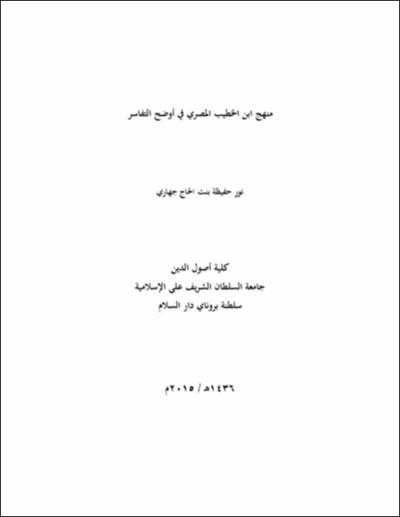| dc.description.abstract | This study discusses the idea and the principles of interpretation invented by one of the writers in the modern era, Ibn Al-Khatib, who have gone through life circa 19th century AD. Ibn Al-Khatib wrote his commentary at the age of 30s, which has been known as 'Audhah al-Tafasir'. However, his interpretation and writing patterns are different to the Interpretation of the Quran, which only consist of commentaries in footnotes form and have yet to reach the style of interpretation. Current study focuses on identifying the style of these commentaries and the methods applied by Ibn Al-Khatib; namely on his interest in the knowledge of Al-Quran, languages, his resolution in creed and jurisprudence related, his commitment in adhering to the school of Ahli Sunnah Wal Jama'ah and his view towards the school of Fiqh, aside from examining his opinion on various aspects in knowledge and theory. Throughout the study, researcher found that the reviews were written in the footnotes of the mushaf with some do not meet the criteria of an interpreter. Ibn Al-Khatib also denied some of the writings of Resm U’thmani, the views of the companions of the Prophet’s and ruled out some of the readings of Mutawatir as a basic requirement of interpretation. Furthermore, this study also attempts to reveal Ibn Al- Khatib’s dubious and conflicting opinions, aside from explaining his disagreement with the majority of jurists of Fuqaha and the four schools (mazhab). The researcher utilised inductive method and descriptive analysis by examining Ibn Al-Khatib’s opinions thoroughly, from a sentence to a paragraph, from a chapter to the next with relevant analysis and assessment, to learn the features implemented by Ibn Al-Khatib in his commentaries. | en_US |



